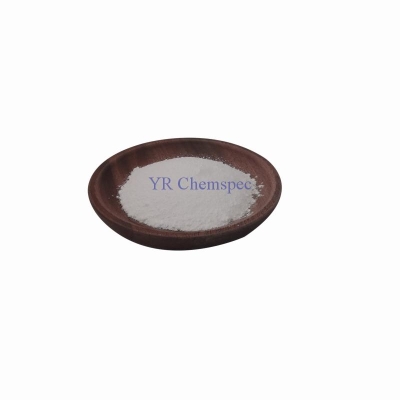-
Categories
-
Pharmaceutical Intermediates
-
Active Pharmaceutical Ingredients
-
Food Additives
- Industrial Coatings
- Agrochemicals
- Dyes and Pigments
- Surfactant
- Flavors and Fragrances
- Chemical Reagents
- Catalyst and Auxiliary
- Natural Products
- Inorganic Chemistry
-
Organic Chemistry
-
Biochemical Engineering
- Analytical Chemistry
- Cosmetic Ingredient
-
Pharmaceutical Intermediates
Promotion
ECHEMI Mall
Wholesale
Weekly Price
Exhibition
News
-
Trade Service
Jimo adopts the enterprise-led, government-supported solar town, which organically combines photovoltaic, modern agriculture and new urban communities, without farmers paying a penny, the enterprise builds a photovoltaic greenhouse, the vegetables grown under the shed are higher than the market price for recycling, and farmers also have land rent fees
every year.
The reporter learned from the government of Daxin Town, Jimo City yesterday that the government not only allows farmers to use free electricity, but also introduces corresponding support policies to help farmers start businesses
.
Sun Yuntang, a 61-year-old farmer, contracted three photovoltaic greenhouses, hired eight villagers to help manage vegetable fields, and became a "maker" himself, earning nearly 80,000 yuan
a year.
The government funds farmers to use free electricity
"Not only does it cost you nothing to use electricity, but you can also make money
.
" Fan Xiujiang, a villager in Liangjiahuang Village, Jimo Daxin Town, said that four 250W solar photovoltaic panels were installed on the roof of his bungalow funded by the government, generating an average of 4 degrees per day and 1,460 degrees per year, basically meeting the daily electricity demand
.
The reporter learned that at present, 74 villagers in Liangjiahuang Village have installed solar photovoltaic power generation systems on their roofs, and more than 200 solar LED street lights
have been installed on village roads.
The relevant person in charge of the Daxin Town Government of Jimo City introduced that the rooftop distributed solar panels installed in the village gave the villagers a taste of the sweetness, not only daily electricity does not cost money, but also the unused electricity can also be transmitted to the national grid
.
In the farmer's house, there are a total of two electricity meters, one meter is the same as ordinary residents' homes, one end is connected to the power supply line of the home, the other end is connected to the national grid, it records the electricity consumption of the household; Another meter is connected to the roof, and the electricity generated by solar energy flows through this meter to the national grid
.
Villager Li Aiqing said that as of March, his family had generated 634 kWh of solar power, consumed 344 kWh of electricity himself, and the remaining 291 kWh was all integrated into the State Grid, and the income went to the enterprise that installed the equipment and maintained it
.
Farmers' "makers" earn 80,000 yuan a year
In Huasheng Solar Farm, the reporter saw rows of photovoltaic agricultural greenhouses, different from ordinary brick wall structure greenhouses, these greenhouses are steel structures, the roof of the shed is not plastic film, but photovoltaic power generation panels, the bottom of the shed is planted with a variety of crops, as long as there is the sun, the roof of the shed will continue to generate electricity, not only to meet the needs of lighting and irrigation in the shed, the remaining electricity is integrated into the national grid to generate revenue
.
Sun Yuntang, a 61-year-old farmer in Zhangge Zhuang Yili Village, Jimo Daxin Town, said that he used to farm 4 acres of land at home, plus going out to do odd jobs, and his income
was up to 45,000 yuan a year.
Later, he transferred 3.
6 acres of land to Changsheng Nippon and became an agricultural worker
at Huasheng Solar Farm.
After being familiar with the operation mode of photovoltaic greenhouses, Sun Yuntang contracted 3 greenhouses and began his own maker road
.
Sun Yuntang said that several kinds of green leafy vegetables are planted on the sunny side, shiitake mushrooms are cultivated on the shady side, and crystalline silicon photovoltaic panels placed in the center of the roof convert solar energy into electricity, bearing all the modern functions
of the greenhouse, such as agricultural Internet of Things traceability, far-infrared heating, photovoltaic module dimming, atomized micro-spray irrigation, etc.
Now, Sun Yuntang's annual net income has reached nearly 80,000 yuan, and while he started his own business, he also hired eight villagers from surrounding villages, driving local employment
.
"Cultivating farmers like Sun Yuntang is also part of our goal
to achieve targeted poverty alleviation.
" Wang Haiyu said that Sun Yuntang planted and produced a variety of agricultural products according to the company's orders, undertook the responsibilities of field operations, production labor management and cost control, the company unified control of seeds, fertilizers and medicines, and provided planting technology and management guidance, and most importantly, the company used platform advantages and marketing methods to solve the problem
of commercial sales of agricultural products at the market end.
Enterprises will buy back vegetables in a way slightly higher than the average market price, so that vegetable farmers do not have the worries of unmarketable agricultural products, and at the same time the company bears the land rent of the greenhouse, all labor costs and platform fees, saving a lot of hidden costs
for the company's original development method.
Jimo adopts the enterprise-led, government-supported solar town, which organically combines photovoltaic, modern agriculture and new urban communities, without farmers paying a penny, the enterprise builds a photovoltaic greenhouse, the vegetables grown under the shed are higher than the market price for recycling, and farmers also have land rent fees
every year.
The reporter learned from the government of Daxin Town, Jimo City yesterday that the government not only allows farmers to use free electricity, but also introduces corresponding support policies to help farmers start businesses
.
Sun Yuntang, a 61-year-old farmer, contracted three photovoltaic greenhouses, hired eight villagers to help manage vegetable fields, and became a "maker" himself, earning nearly 80,000 yuan
a year.
The government funds farmers to use free electricity
The government funds farmers to use free electricity"Not only does it cost you nothing to use electricity, but you can also make money
.
" Fan Xiujiang, a villager in Liangjiahuang Village, Jimo Daxin Town, said that four 250W solar photovoltaic panels were installed on the roof of his bungalow funded by the government, generating an average of 4 degrees per day and 1,460 degrees per year, basically meeting the daily electricity demand
.
The reporter learned that at present, 74 villagers in Liangjiahuang Village have installed solar photovoltaic power generation systems on their roofs, and more than 200 solar LED street lights
have been installed on village roads.
The relevant person in charge of the Daxin Town Government of Jimo City introduced that the rooftop distributed solar panels installed in the village gave the villagers a taste of the sweetness, not only daily electricity does not cost money, but also the unused electricity can also be transmitted to the national grid
.
In the farmer's house, there are a total of two electricity meters, one meter is the same as ordinary residents' homes, one end is connected to the power supply line of the home, the other end is connected to the national grid, it records the electricity consumption of the household; Another meter is connected to the roof, and the electricity generated by solar energy flows through this meter to the national grid
.
Villager Li Aiqing said that as of March, his family had generated 634 kWh of solar power, consumed 344 kWh of electricity himself, and the remaining 291 kWh was all integrated into the State Grid, and the income went to the enterprise that installed the equipment and maintained it
.
Farmers' "makers" earn 8,<> yuan a year
Farmers' "makers" earn 8,<> yuan a yearIn Huasheng Solar Farm, the reporter saw rows of photovoltaic agricultural greenhouses, different from ordinary brick wall structure greenhouses, these greenhouses are steel structures, the roof of the shed is not plastic film, but photovoltaic power generation panels, the bottom of the shed is planted with a variety of crops, as long as there is the sun, the roof of the shed will continue to generate electricity, not only to meet the needs of lighting and irrigation in the shed, the remaining electricity is integrated into the national grid to generate revenue
.
Sun Yuntang, a 61-year-old farmer in Zhangge Zhuang Yili Village, Jimo Daxin Town, said that he used to farm 4 acres of land at home, plus going out to do odd jobs, and his income
was up to 45,000 yuan a year.
Later, he transferred 3.
6 acres of land to Changsheng Nippon and became an agricultural worker
at Huasheng Solar Farm.
After being familiar with the operation mode of photovoltaic greenhouses, Sun Yuntang contracted 3 greenhouses and began his own maker road
.
Sun Yuntang said that several kinds of green leafy vegetables are planted on the sunny side, shiitake mushrooms are cultivated on the shady side, and crystalline silicon photovoltaic panels placed in the center of the roof convert solar energy into electricity, bearing all the modern functions
of the greenhouse, such as agricultural Internet of Things traceability, far-infrared heating, photovoltaic module dimming, atomized micro-spray irrigation, etc.
Now, Sun Yuntang's annual net income has reached nearly 80,000 yuan, and while he started his own business, he also hired eight villagers from surrounding villages, driving local employment
.
"Cultivating farmers like Sun Yuntang is also part of our goal
to achieve targeted poverty alleviation.
" Wang Haiyu said that Sun Yuntang planted and produced a variety of agricultural products according to the company's orders, undertook the responsibilities of field operations, production labor management and cost control, the company unified control of seeds, fertilizers and medicines, and provided planting technology and management guidance, and most importantly, the company used platform advantages and marketing methods to solve the problem
of commercial sales of agricultural products at the market end.
Enterprises will buy back vegetables in a way slightly higher than the average market price, so that vegetable farmers do not have the worries of unmarketable agricultural products, and at the same time the company bears the land rent of the greenhouse, all labor costs and platform fees, saving a lot of hidden costs
for the company's original development method.







